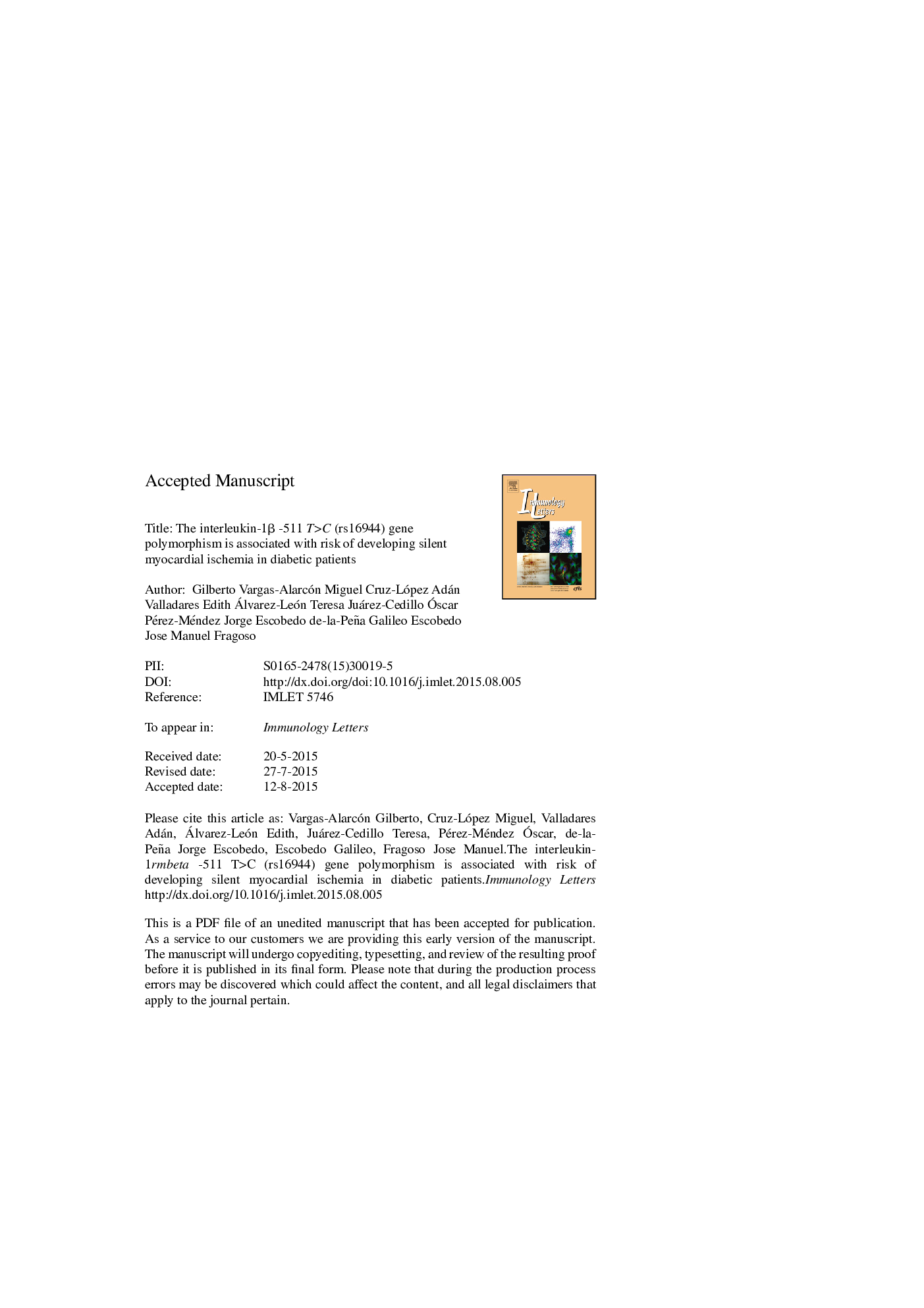| Article ID | Journal | Published Year | Pages | File Type |
|---|---|---|---|---|
| 6117069 | Immunology Letters | 2015 | 26 Pages |
Abstract
Silent myocardial ischemia (SMI) is a multifactorial and polygenic disorder that results from an excessive inflammatory response. Considering the prominent role of IL-1β, IL-1F10 and IL-1RN as regulators of the inflammatory process and vascular physiology, the aim of the present study was to analyze whether IL-1β, IL-1F10 and IL-1RN single nucleotide polymorphisms (SNPs) are associated with SMI. One polymorphism was associated with risk of SMI. Under co-dominant, recessive and additive models, the IL-1β-511 T > C polymorphism was associated with increased risk of SMI when compared to healthy controls (OR = 4.68, 95%CI = 2.21-9.92, pCCo-dom = 0.0048; OR = 3.97, 95%CI = 1.97-7.99, pCRec = 0.0024; OR = 2.02, 95%CI = 1.41-2.90, pCAdd = 0.0024, respectively). All models were adjusted for gender, age and smoking. Linkage disequilibrium analysis showed four haplotypes (CTCC, CCTC, CCCT and CTCC) with increased frequency in SMI patients when compared to healthy controls (OR = 2.53, 95%CI = 1.47-4.36, pC = 0.0009, OR = 2.34, 95%CI = 1.15-4.74, pC = 0.02, OR = 2.44, 95%CI = 1.14-5.18, pC = 0.02, OR = 5.11, 95%CI = 1.37-19.05, pC = 0.01, respectively). In summary, our data suggest that the IL-1β-511 T > C polymorphism plays an important role in the development of SMI in diabetic patients. In addition, in our study was possible to distinguish one protective and four risk haplotypes for development of SMI.
Keywords
Related Topics
Life Sciences
Immunology and Microbiology
Immunology
Authors
Gilberto Vargas-Alarcón, Miguel Cruz-López, Adán Valladares, Edith Álvarez-León, Teresa Juárez-Cedillo, Ãscar Pérez-Méndez, Jorge Escobedo de-la-Peña, Galileo Escobedo, Jose Manuel Fragoso,
